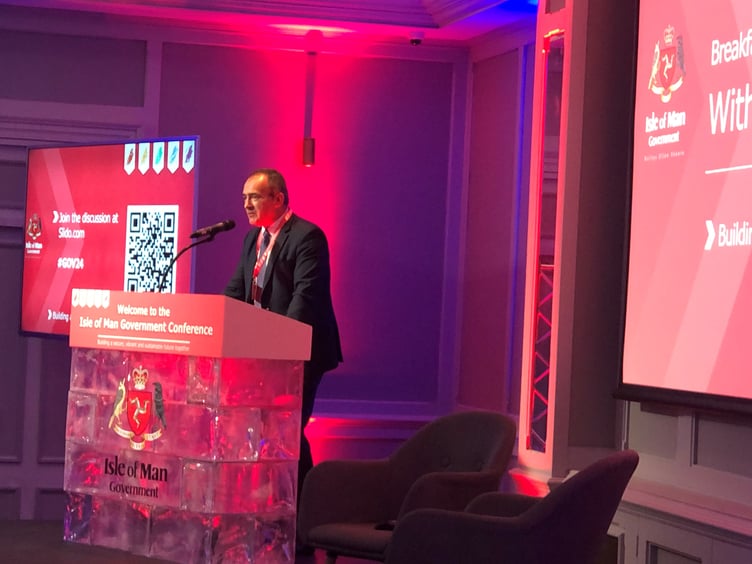Manx Care’s overspending is ‘destabilising already finely-balanced’ government finances - and an immediate turnaround plan is needed.
Chief Minister Alfred Cannan made the comment as he delivered his keynote speech setting out the core focus his administration over the next 12 months, at the start of the two-day Government Conference.
It emerged last week that Manx Care is forecasting at £16.8m overspend this financial year - although it is hoping to reduce the deficit by about £11m.
This overspending is despite it receiving an extra £43.8m in its budget this year, paid for in part by a 2p in the pound increase in the higher rate of income tax.
Mr Cannan told the conference which got underway today (Tuesday) at the Comis Hotel: ‘It will not be a surprise to anyone that we are working in challenging circumstances.
‘Last year, with the tax rise included, Manx Care received an additional £43m in funding, conditional on its promise to stay within budget. It is clear that this will not be the case and that once again health spending currently looks to be many, many millions beyond its allocation.
‘Whilst there has been years of commitments and actions, further strategic action is needed. This overspending is destabilising an already finely balanced government fiscal expenditure. It simply cannot go on without risking the stability of our public reserves.’
Mr Cannan said all government departments including health must stick to their budgets and an immediate turnaround plan is now needed for Manx Care.
He added: ‘Those discussions are under way and as soon as the plan has been agreed it will be communicated to Tynwald and the community.’
Mr Cannan announced that a minimum of £10m of savings and efficiencies, in addition to those in healthcare, would be made as part of public service reform, to take effect from April next year.
The Chief Minister said the island’s birth rate is ‘simply too low’ and without significant changes to productivity or without attracting new workers, the cost of delivering health and social care alongside pensions will dominate the public purse for years to come.
Retaining young people and developing the right skills on-island is one part of the equation, he said, but there is ‘no question that we also need additional skilled and unskilled resources to maintain and grow our economy’.
He said: ‘The right inward migration policies are necessary if we are to retain the attractiveness of the island to modern business and indeed modern society. You simply cannot have it both ways.
‘It’s progress or regress.’
But the Chief Minister acknowledged that targeted population growth must not be at the expense of the island’s security. Day two of the conference will feature a session on keeping our island safe.
‘Despite the fact that we remain the safest place to live and work in the British Isles, we simply cannot take our future security for granted,’ Mr Cannan said.
‘The world is facing ever-increasing threats to physical and economic security. We are introducing important changes to the way we secure our island.’
Mr Cannan said we need to know more about who is arriving on our shores and there had been increased attempts by ‘foreign actors to use our island for purposes that do not fit with our values and goals’.
This had required government to respond and intervene, continuing to develop stronger controls and oversight and ensuring visa processes are robust and cannot be exploited.

Mr Cannan said despite turmoil both globally and closer to home in the last three years, the government had achieved many ambitions - with 1,300 more people in work, a positive credit rating report from Moody’s and almost 800 new homes given planning consent.
Another focus of the conference will be the island’s air and sea routes.
Mr Cannan said talks have been held with the Steam Packet about pricing and a more defined framework was needed which offered fares and freight costs at ‘best consumer value’ without disrupting the company’s ability to operate free from direct government subsidy.

.png?width=209&height=140&crop=209:145,smart&quality=75)
.png?width=209&height=140&crop=209:145,smart&quality=75)
-(1).jpeg?width=209&height=140&crop=209:145,smart&quality=75)
.jpeg?width=209&height=140&crop=209:145,smart&quality=75)